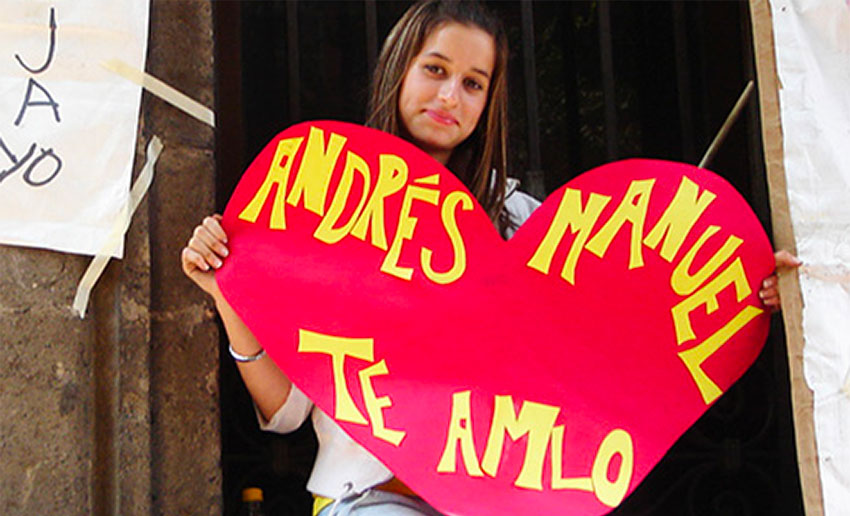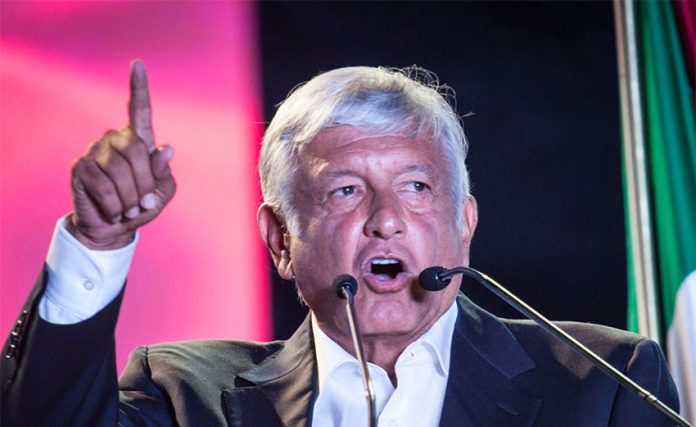Andrés Manuel Lopez Obrador, better known as AMLO, is a savvy politician who slept on the floor of mud huts in impoverished rural Mexico before rising to the challenge of the Mexican presidency to combat corruption in multidimensional ways starting with big oil companies.
He has gone to war against the immense network of criminal gangs, politicians and businesses that have been sacking Mexico for the last 80 years.
AMLO today represents hope not only for Mexicans but for Latin Americans as well to be part of something better, for both rich and poor. The game is on and the stakes are high!
In July 2018, as president-elect, AMLO acknowledged that he was about to receive a country with an unsustainable economic model, and probably on the verge of collapse. A magical country with a perverse disparity; while one part was bright with a trillion-dollar economy, the other was in darkness with more than 50% of its population living in extreme poverty.
Mexico was at the bottom of most metrics of the Organization for Economic Co-operation and Development (OECD): corruption, bullying, femicide, sexual violence, assassinations, inequality and even tax revenue. To put it mildly, all government institutions were rotten to the core and corruption was rampant.
The Washington Post has said on several occasions that AMLO is the Mexican Trump and at the same time compares the AMLO administration to Venezuela and Cuba. No surprise, given that highly respected media organizations have skewed to the extreme left and are not fans of a populist.
According to the Post’s own words, populist-fueled fragmentation is bad news for democracy. Clearly its corporate ideology blurs cognitive thought for the comprehension of a complex reality.
To understand AMLO’s populist approach, we must understand where we come from. Neoliberalism in the 20th century was a progression of the 19th-century ideas of laissez-fair economic liberalism. In the 1980s Margaret Thatcher and Ronald Reagan led the economic liberalization policies such as privatization, austerity, deregulation and free trade, which were effectively implemented in the developed world.
In Mexico the whole model was tropicalized with a twist; democracy was an illusion; institutions were fragile and the despoiling of government by the governing classes created a profound disrespect for the law from all sides.
Mismanagement and corruption became tangible. Corruption progressed to a point where it was no longer just an aspect of Mexican political life — corruption became its purpose. Many newly privatized conglomerates were given to friends and family. The result was slower growth, decreasing equality, increasing criminal violence and the development of an underclass with no future and no hope.
Before AMLO won the elections, he was questioned by the media pundits of Mexico’s governing class who warned voters that AMLO was a dangerous radical who would drive Mexico into a Venezuela-like economic catastrophe.

Of course, these are the same guys who had hailed each of the last five neoliberal presidents — Carlos Salinas, Ernesto Zedillo, Vicente Fox, Felipe Calderón and Enrique Peña Nieto — as “honest reformers.”
AMLO’s economic vision includes economic improvement for the poor — in a country where more than 50% are poor — development of new infrastructure, rebuilding of the police, the judicial system and much of the civil service from the ground up.
He holds town meetings and conducts polls to get citizen feedback, and it is the first time in the history of Mexico that people outside the governing class have ever been asked.
Mexico’s labor force was about 52.8 million as of 2015. The OECD and the World Trade Organization both rank Mexican workers as the hardest-working people in the world, a positive title hard to win.
One of the most visible wars AMLO has taken on has been the frontal intervention in Pemex against the vast network of criminal gangs, politicians and businesses that had been looting the national oil company at the rate of more than 60,000 barrels of gasoline a day.
He shut down illegally tapped pipelines, sent in the army to stop tanker trucks from delivering to the black market, sent auditors to seize the fraudulent books and began bringing criminal charges against corrupt managers.
No doubt it was a risky move. Gas supplies suddenly dropped across the country, frustrated motorists could not fill their tanks, freight shipments were delayed and tourism plunged. The Mexican and international media — again — screamed that AMLO was destroying the economy. Within two weeks, supplies were restored.
At a time when persistent inequality is no longer sustainable and much of the neoliberal wisdom has been sent to the trash, most of Latin America — indeed, much of the world — is moving to the right, the 65-year-old López Obrador is an unabashed man of the left, but wise enough to understand that his economic and political rhetoric has to be refurbished for the future, and has to move to the right, in the right direction.
Today AMLO has alliances with the most respectful entrepreneurial associations, has strong bonds with Latin America, Europe and the United States government. He has been recognized by international organizations like the United Nations and the World Bank. Most Mexican entrepreneurs are positively convinced.
The line is clear — economic development and no corruption. But here is a doubt. Will AMLO have the political will to enforce the law against an extremely small yet highly toxic Mexican elite, some of whom have already been red flagged by Interpol?
If so, this might create havoc since their economic and political power is immense in the swamp of the bureaucracy. On the other hand, he could defer to a cordial yet not welcome pardon — the least preferred option among all Mexicans.
In ways such as this AMLO’s presidency could be a game-changer, not only for Mexico, but for Latin America and for the U.S. where economic development, hence immigration, is high on the multilateral agenda.
The risks of having so much depend on one man are real. An assassin’s bullet or a heart attack (he’s already had one) could suddenly throw Mexico and its 130 million inhabitants into chaos and, as several think tanks plainly put it, a civil war.
There is no wall high enough to keep that from spilling over. If AMLO goes down, we all go down.
The writer heads Swiss-based asset manager point5 FAMILY OFFICE and ESG-LAB, which promotes the use of environmental, social and governance metrics to determine risks and opportunities in the performance of investments and companies. He was named one of the Top 100 People in Finance last year by The Top 100 magazine. He holds Mexican and U.S. citizenship.
